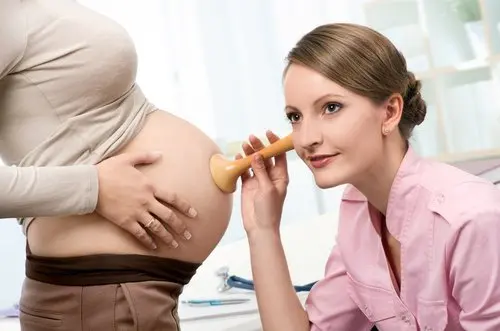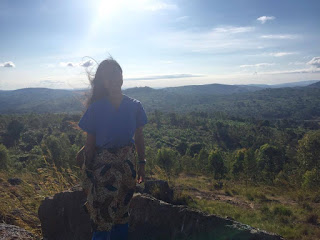Hello!
In an effort to be a good family member and friend, I am attempting to update you all on my month in Burundi so far. Feel free to keep in touch via WhatsApp while I am here.
My travels went smoothly, for which I am so grateful. My flight from Toronto to Addis Ababa was quite empty, so most passengers including myself had an entire row to ourselves with plenty of room to stretch out and sleep. I had no difficulties getting a visa or getting through customs, my luggage all arrived with me, and none of the medical or school supplies I was transporting were taken.
God has been faithful. In the 7 years since I was last in Burundi, I have been through medical school and 2/3 of residency and grown through both of those seasons. Kibuye Hope Hospital has grown a lot as well: regarding new staff, there are now many Burundian generalist physicians, stage professionnels (similar to a transitional year intern), and surgery residents through the PAACS program; regarding new buildings, there is a large pediatric ward, surgery ward, and new operating rooms that have been built.
It is good to be back. Coming from a busy month on my gyn oncology rotation with limited mental space to prepare for this trip, I am thankful to come back to a place that feels familiar, even though there have been lots of changes here and I have a new role to learn.
Kibuye Hope Hospital is in rural Burundi. While I am here, I am living and working with the Serge Kibuye Team, a group of North American physicians of multiple specialties. Many of them trained for residency in Michigan at U of M or St. Joe’s. Rachel McLaughlin is the OBGYN on the team, and I am very thankful to be working with her! I am also working alongside several generalist physicians who run labor and delivery (maternite), and they have been wonderful teachers as well.
On Monday, I spent the day with Rachel in consultation clinic. Patients line up at her clinic door, no appointment necessary, and she just sees them in order until they have all been seen. We had about 25 patients that day. The stage professionnel and/or medical student who is working with her takes the history and translates the patient counseling into Kirundi from French, the language they communicate with Rachel in. She sees lots of fibroids, infertility, pelvic infections, abnormal uterine bleeding, and on Monday we had a few vulvar masses. Bedside transabdominal ultrasound is a large component of many gyn patient evaluations, and as the patients are usually not obese, we got some pretty good images.
On Tuesdays and Thursdays, Rachel has cases in the OR. All of them have been done under spinal anesthesia, so the patients are awake. I got to do my first open myomectomies with her, quite a fun procedure. In addition, she sees quite a few molar pregnancies. We did a manual vacuum aspiration for one (~15 week sized?) since there is no electric suction, and a gravid supracervical hysterectomy for the other (~25 week sized). Both thankfully went well. There are no serum beta hCGs, so these patients are instructed to trend monthly urine pregnancy tests at a local health center. We also removed a 12-15cm what appeared to be vulvar/vaginal/perineal mass which looked like a fibroid in the typical location of the Bartholin’s gland…sending it to the US for pathology since it was unusual.
On Wednesday and Friday, I rounded on maternite with the generalist, Christiane, and spent the day on the OB service. The hospital functions in French, but English is a useful language for the students and physicians to practice. Thus, I have been trying to quickly pick up some French medical terminology, but they will also practice presenting the patients in English, so I can understand. This has allowed for some bedside teaching, which has been fun 😊 And God is gracious: French is coming (back) to me faster than I expected, with still a long ways to go.
Regarding the set up of maternite, there are several wards of inpatients, whether postpartum, antepartum, laboring, or postop from a gyn surgery. There is also a large room with 8 delivery beds where all triage patients come initially, where patients are transferred from their inpatient beds for cervical exams, and where patients ultimately deliver. It has been interesting to try to transfer my knowledge from the U.S. to this setting. The management of patients is often different because of the resources available, for instance instead of continuous fetal monitoring they use intermittent fetoscopy (Pinard Horn, see below), and if a patient is bleeding they have 2 of 5 medications we would normally be able to choose from (misoprostol and oxytocin).
Sprinkled throughout many of the days are scheduled and unscheduled c sections. For these, I’ve assisted the generalist who is very competent, taught a stage professionnel how to do the surgery, and had a medical student assist me. It has been meaningful to contribute to the education of other health care providers, and a good opportunity to figure out my style of education, as well as continue to learn to communicate in a combination of French and English.
Now that I’ve shared what I’ve been doing, I can share that I’ve really loved it. I’m inspired by the resourcefulness of my colleagues and the resilience of patients, and thankful for the ability I have to offer some skills and to bring an attitude of flexibility by God’s grace. I do miss the doctor patient relationship, although I love watching the Burundian physicians counsel our patients. I do miss having a bovie electocautery during c sections (we just use a scalpel) although it just means I will hone different skills. And it does sadden me that many women come in with a history of intrauterine, neonatal, or child deaths.
In the coming weeks, I would appreciate prayer for a few things, if you are someone who prays:
1. Continued flexibility as I learn to be a good colleague and be helpful in the right places, as well as continue trying to pick up French along the way to improve my ability to communicate
2. Wisdom as I process these experiences in order to discern if God is leading me toward global medicine in the future. Feel free to ask me about this when I get back.
I lift up my eyes to the hills.
From where does my help come?
My help comes from the Lord,
who made heaven and earth.
He will not let your foot be moved;
he who keeps you will not slumber.
Behold, he who keeps Israel
will neither slumber nor sleep.
The Lord is your keeper;
the Lord is your shade on your right hand.
The sun shall not strike you by day,
nor the moon by night.
The Lord will keep you from all evil;
he will keep your life.
The Lord will keep
your going out and your coming in
from this time forth and forevermore.








































